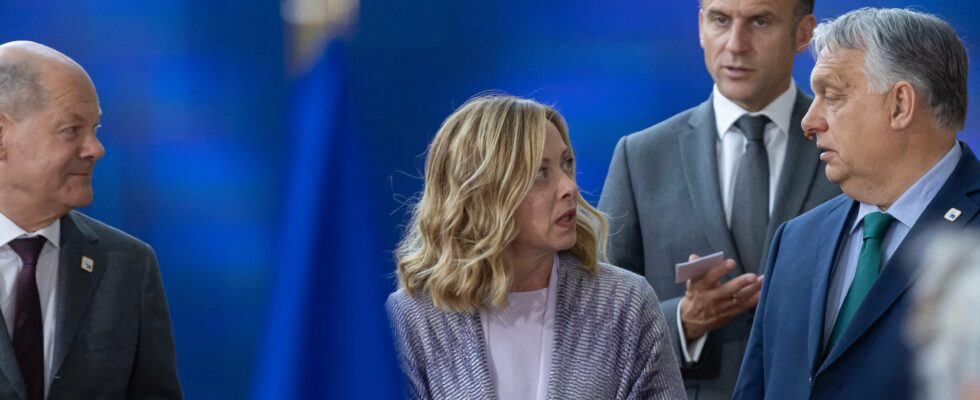Since July 1, Viktor Orban has been President of the Council of the European Union. The most anti-European of European leaders finds himself the master of ceremonies of the 27 heads of state and government in Brussels, as well as of the meetings between their ministers and ambassadors. The one who distinguishes himself among his peers by violating the rules of the rule of law and vetoing aid to Ukraine will be responsible for helping them find consensus… Despite appearances, this is not a joke, but simply the result of chance: this is the decision of the calendar of the rotating presidencies of the Union, which are held in turn by each of the 27 Member States for a six-month period.
Orban as president is quite a symbol and the Hungarian Prime Minister seizes it with undisguised joy. This is evidenced by the slogan he has chosen to mark the course of his priorities for the next six months: “Make Europe Great Again”. These four words clearly show the double game of this national-populist, close to Donald Trump and Vladimir Putin, both a member of the EU and NATO and a friend of the enemies of the EU and NATO. Behind the hypocritical objective of making the Union weigh on the international stage, the formula is a nod to his friend Trump who was elected in 2016 on the promise (borrowed from former President Ronald Reagan) of “Make America Great Again”. The two men, who received each other in their respective residences, share some broad ideological lines: nationalism, cult of the leader, white and Christian supremacism, traditionalism, “illiberal” democracy, through the subjugation of counter-powers and the establishment of autocracy. And the same hatred of “Brussels”.
Viktor Orban is no longer an isolated case in Europe. His Italian nationalist counterpart Giorgia Meloni triumphed in the elections. She differentiates herself from Orban and Marine Le Pen by her opposition to Putin but shares their Trumpian lines, even in her fiery speeches against an EU that she uses. She abstained in the Council during the vote to reappoint the EPP candidate Ursula von der Leyen as head of the Commission, who was nevertheless counting on her support. She voted against the nomination of the Portuguese Antonio Costa (S & D) to the Council, and of the Estonian Kaja Kallas (Renew) as head of European diplomacy. The leaders of the central coalition of the Christian Democrats (EPP), Social Democrats (S & D) and Liberals (Renew) groups had agreed in advance on the nomination of these “top jobs” in the EU. Big mistake, they left the Italian Prime Minister aside with an arrogance she will not forget. Viktor Orban voted the same in the Council. Neither of them made a fuss. They know they have the wind in their sails to unravel the Union from within.
The spectre of a Germanophobic and Europhobic France
If, after July 7, France finds itself with a government led by the National Rally of Marine Le Pen and Jordan Bardella, it is the dynamics of the European Union that will change, with Meloni as boss and Orban as Putin’s rear base. In Germany, leaders fear “a catastrophe” for the Franco-German engine. Already today, France’s voice is weakened in Europe by the unpredictability born of an express dissolution and by the prospect of three years under national-populist, Germanophobic and Europhobic governance.
The President of the Republic will maintain his place in the Council of the EU, but the members of the government will sit on the councils of ministers (defense, foreign affairs, ecofin, etc.). The room for maneuver of the head of state, who does not control the budget, will be limited at the most crucial moment in the history of the European Union, which is at stake in Ukraine. What about increasing the European defense fund? The large loan financing the reindustrialization of the EU? Financial and military aid to Ukraine? “Emmanuel Macron told me that nothing should change,” said Ukrainian President Volodymyr Zelensky. But what is France’s word worth now?
The next NATO summit will include long-term support for Ukraine among its priorities. It will take place in Washington from July 9 to 11, in the wake of the results of the legislative elections in France. Emmanuel Macron will be there late, as it is the day after the election. With which Minister of Defense?
.
